Risk Financing: Analysis of Foreign Exchange Derivatives Strategies
VerifiedAdded on 2021/12/13
|17
|1425
|59
Report
AI Summary
This report provides a comprehensive overview of risk financing using foreign exchange derivatives. It begins by introducing the concept of foreign exchange and the associated risks faced by businesses in international trade. The report then delves into various types of derivatives, including forward contracts, futures contracts, options contracts, and swap contracts. For each type, the report explains the basic features, merits, and demerits. Forward contracts are presented as agreements for future transactions, highlighting their role in hedging and risk management but also acknowledging the risk of non-performance. Futures contracts are discussed in terms of their standardized nature and ease of access, along with their leverage and price volatility. Options contracts are examined for their cost-effectiveness and marketability, as well as their complexity and time decay. Finally, swap contracts are described as tools for managing currency fluctuations, emphasizing their benefits for both parties involved, while also mentioning the challenges in finding suitable counterparts and the associated costs. The report references several academic sources to support its analysis.
1 out of 17
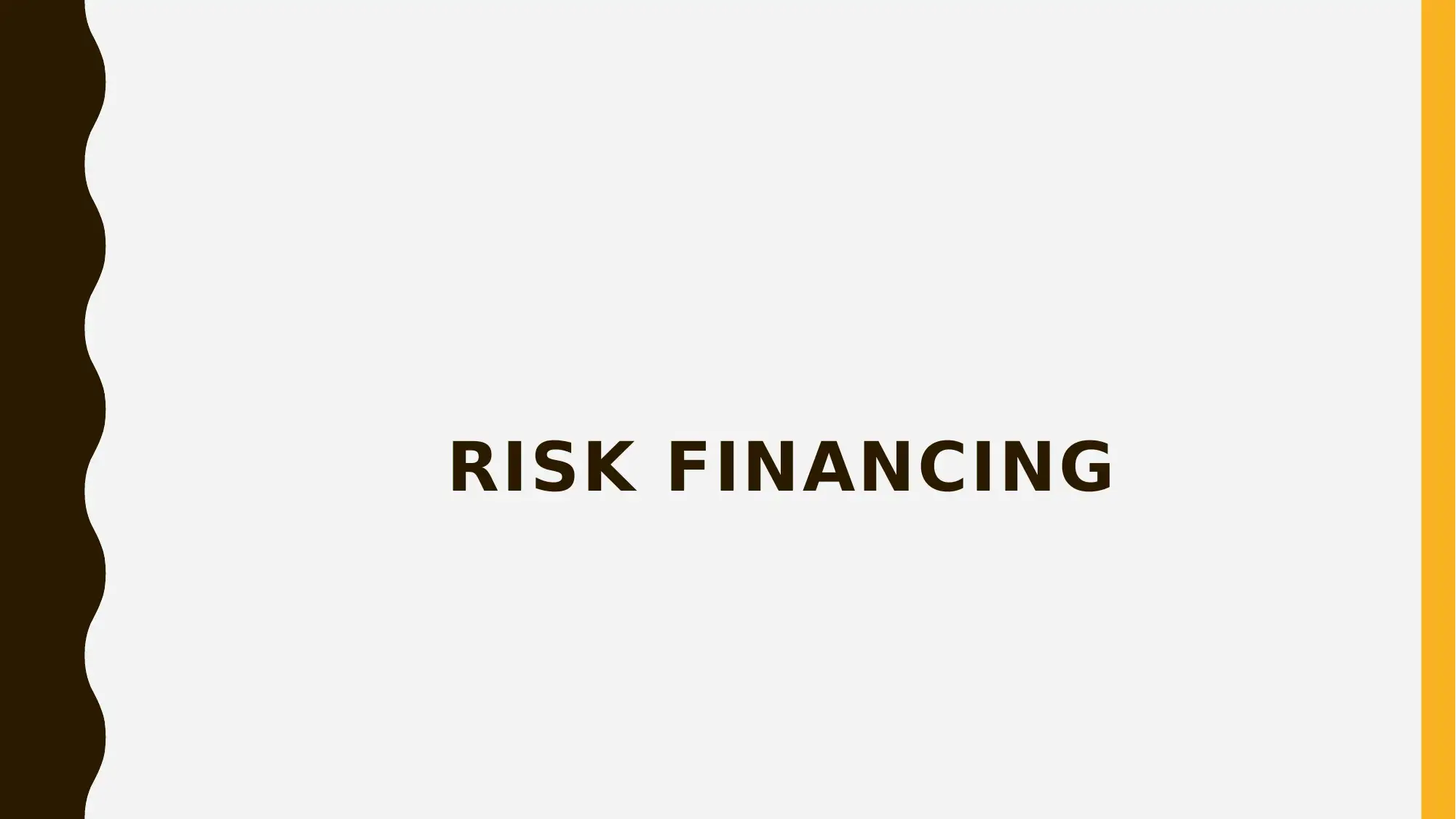
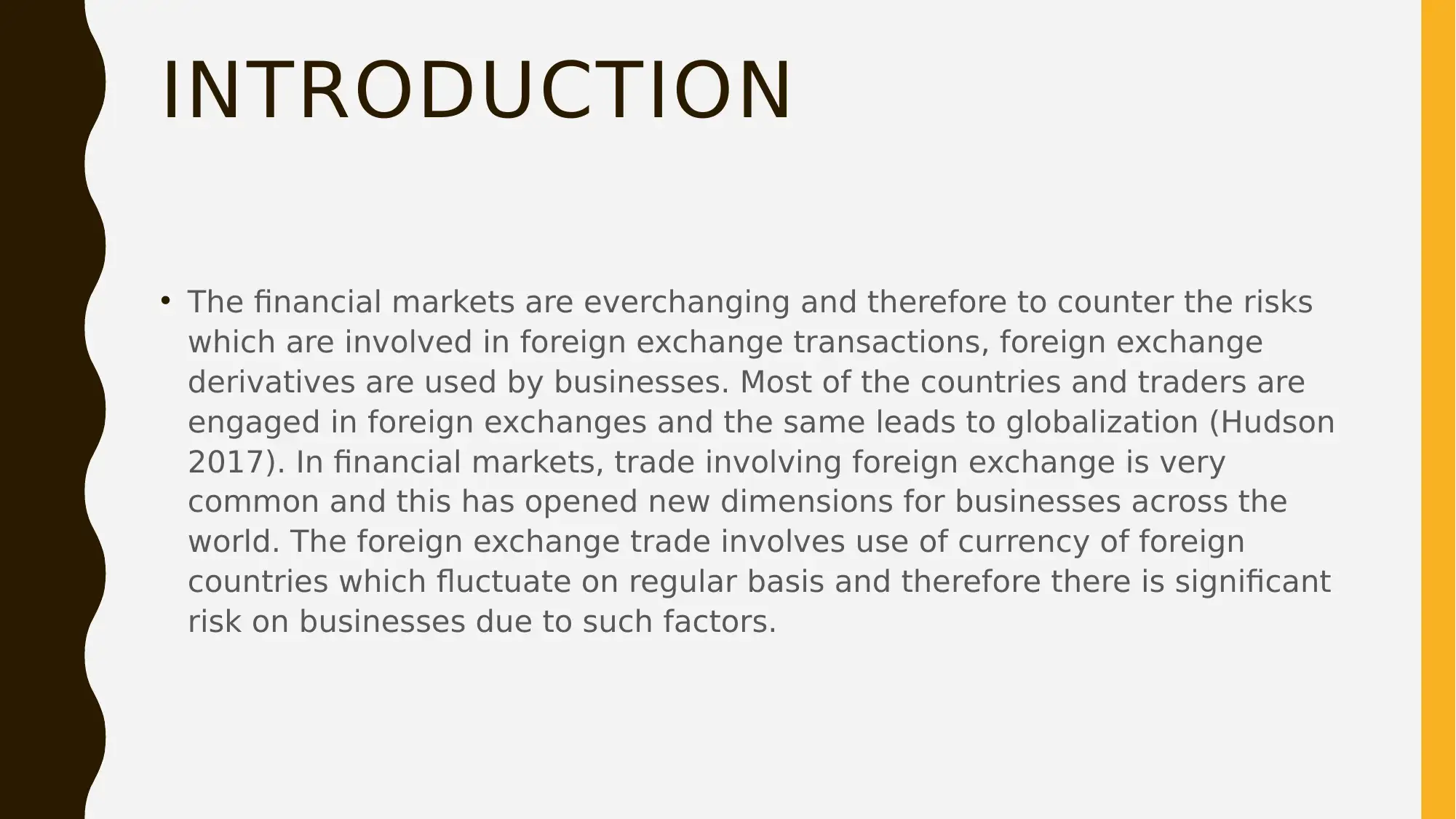
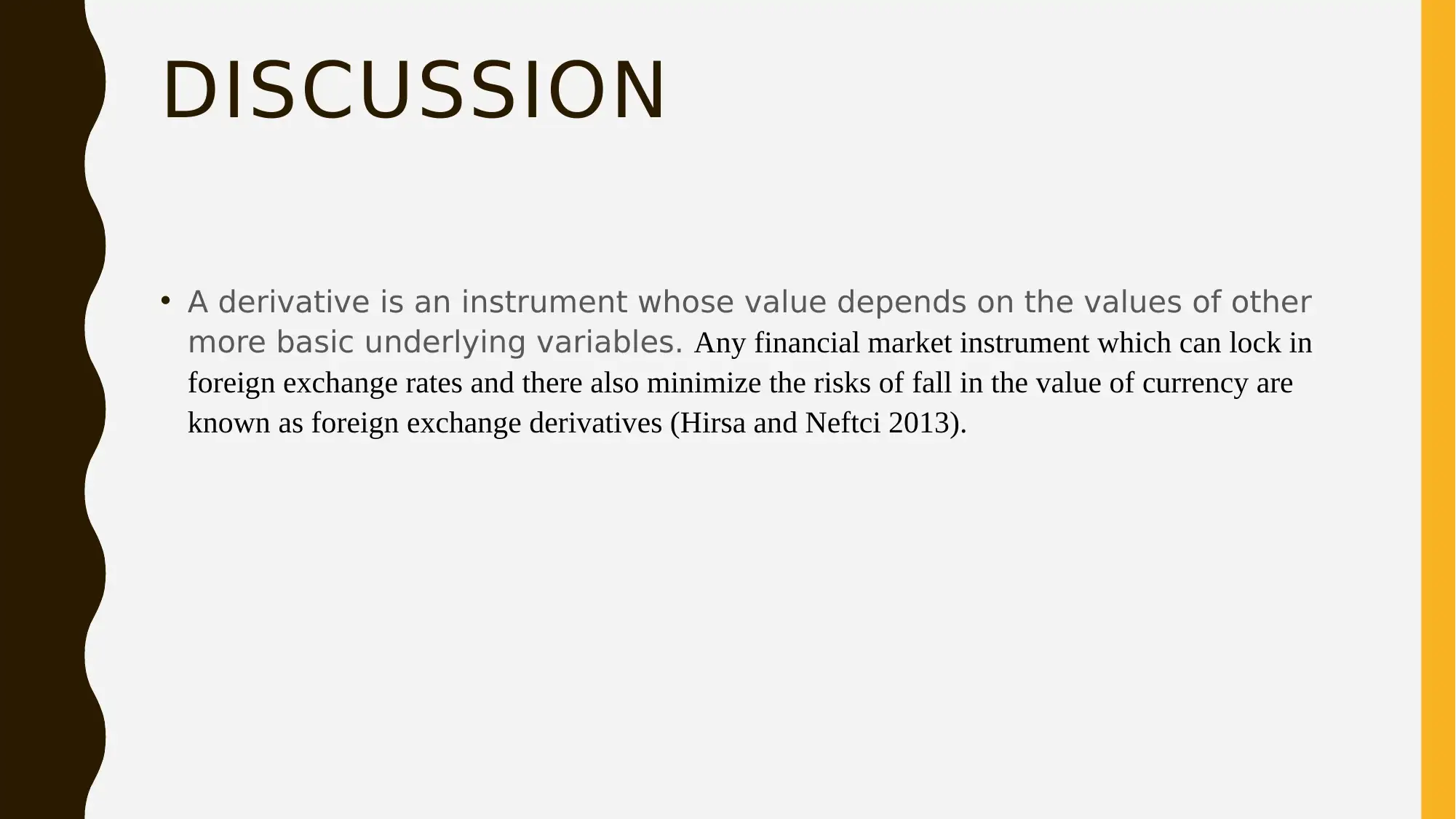

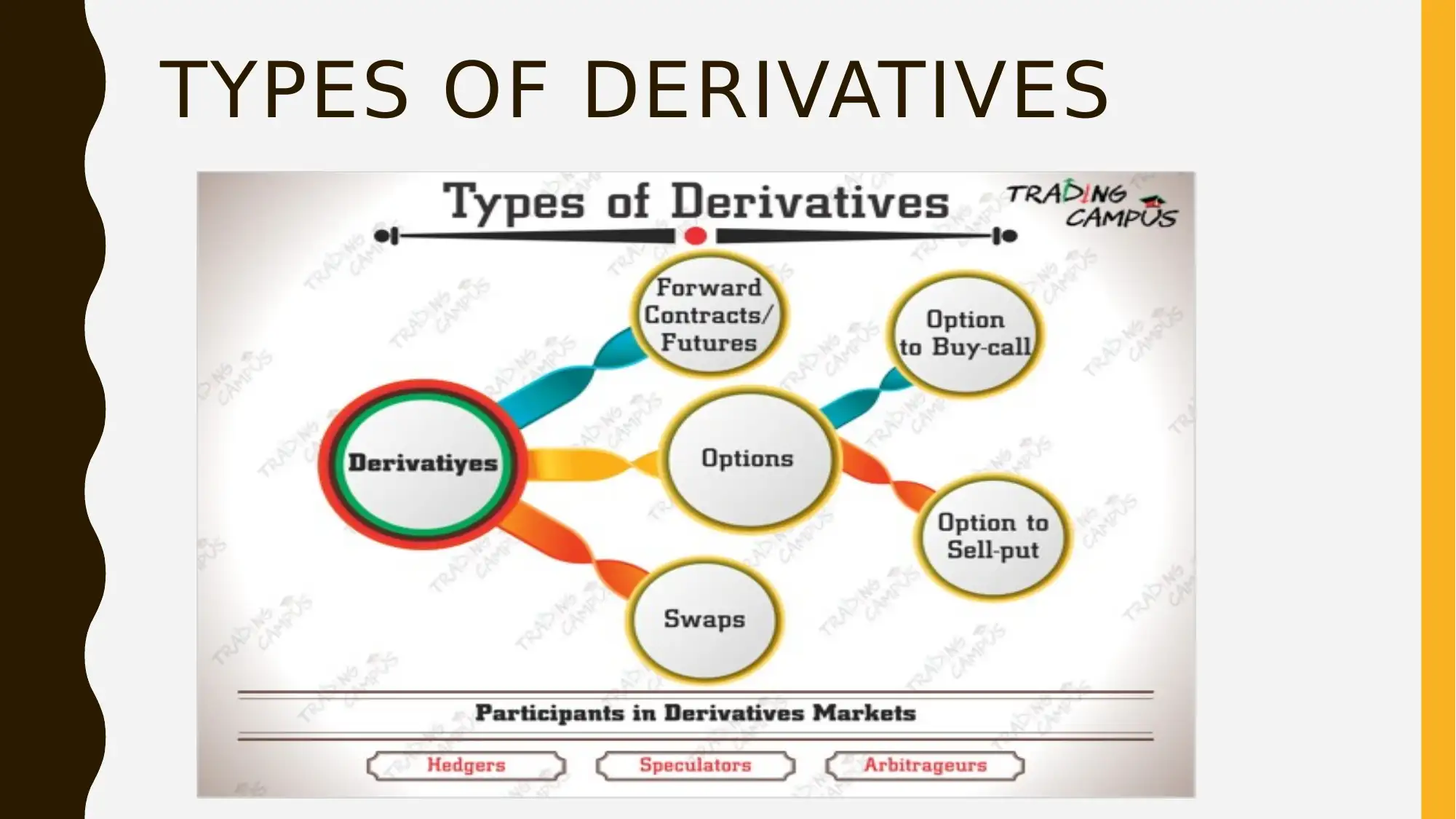
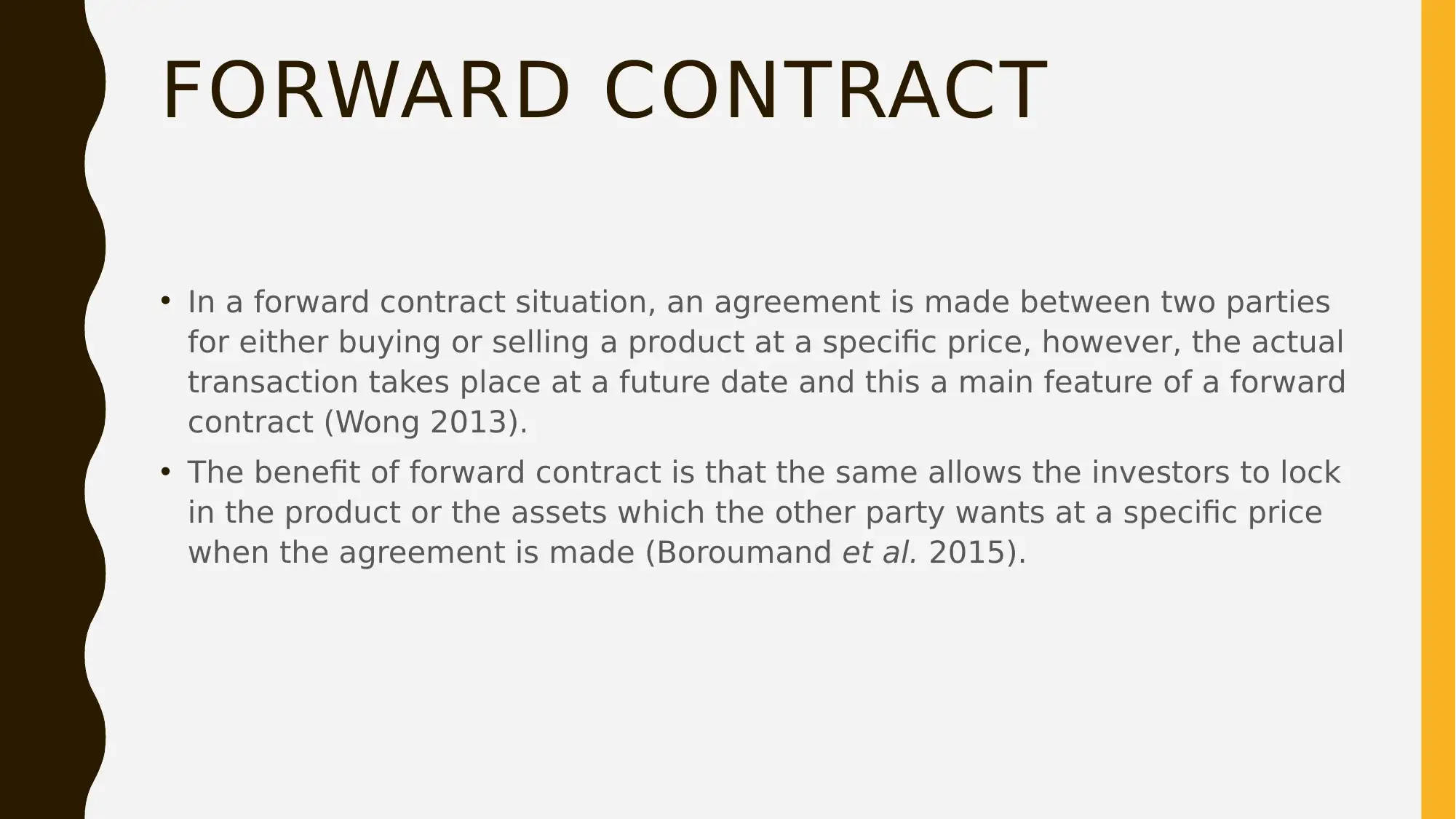
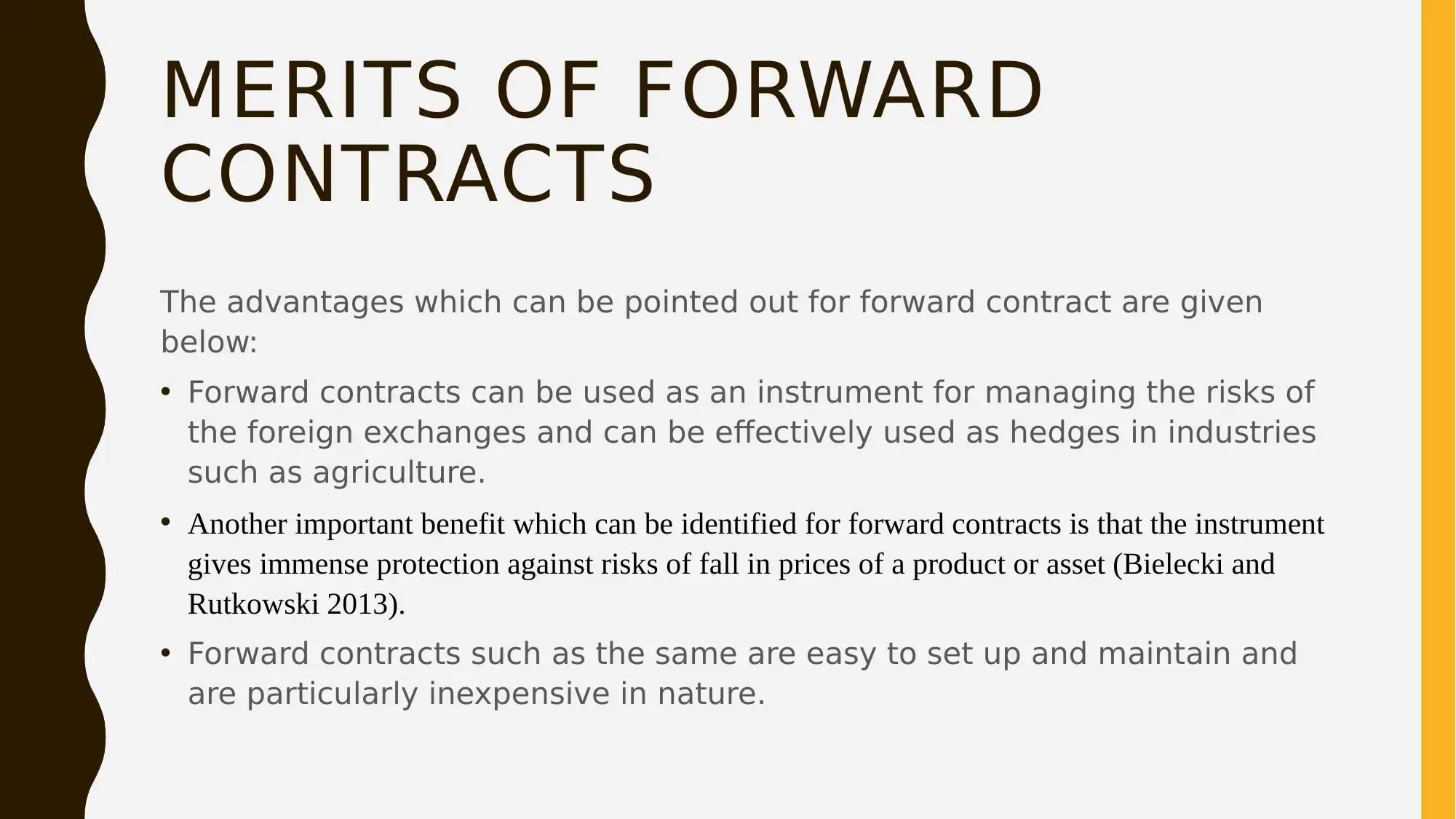
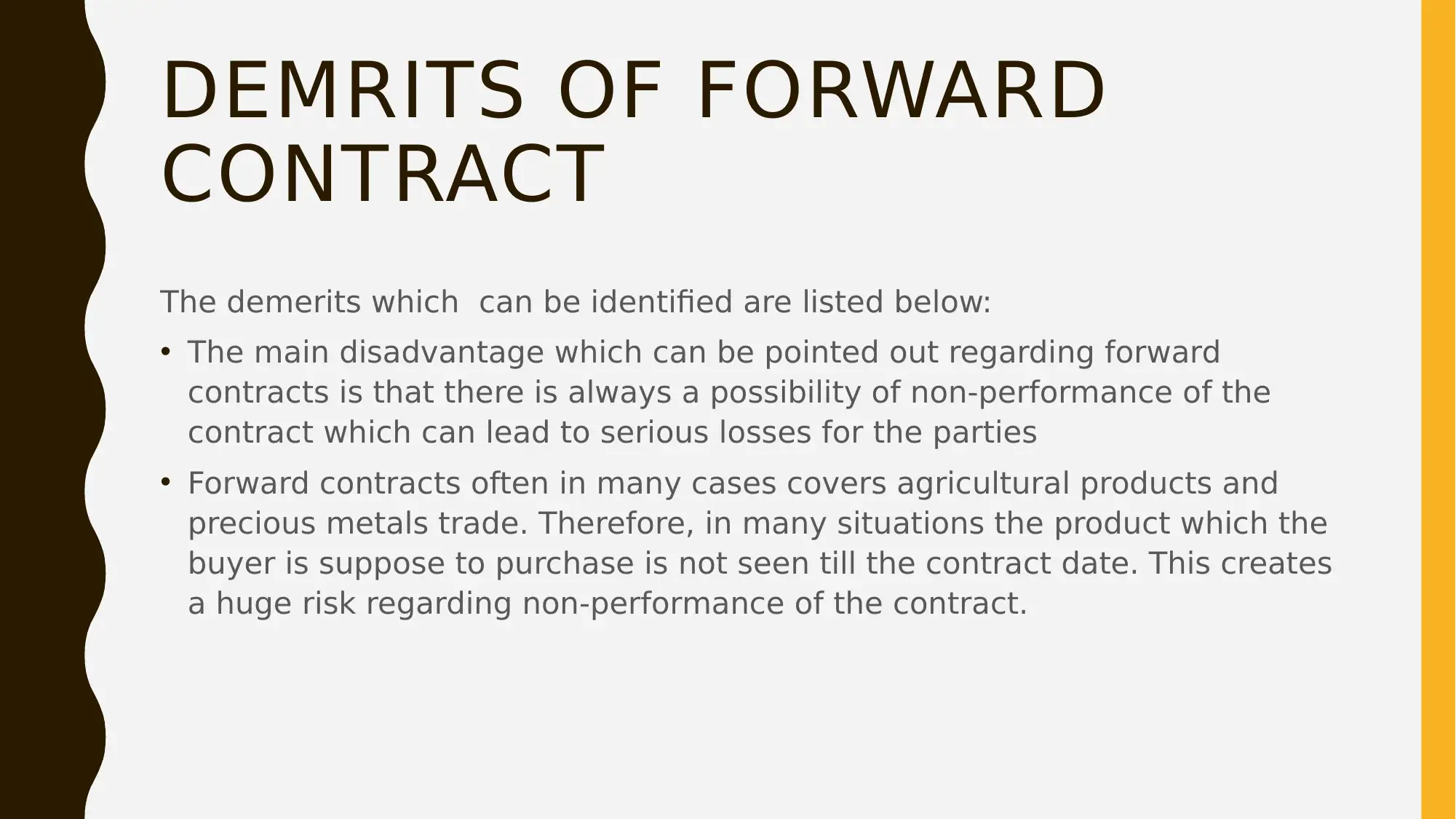
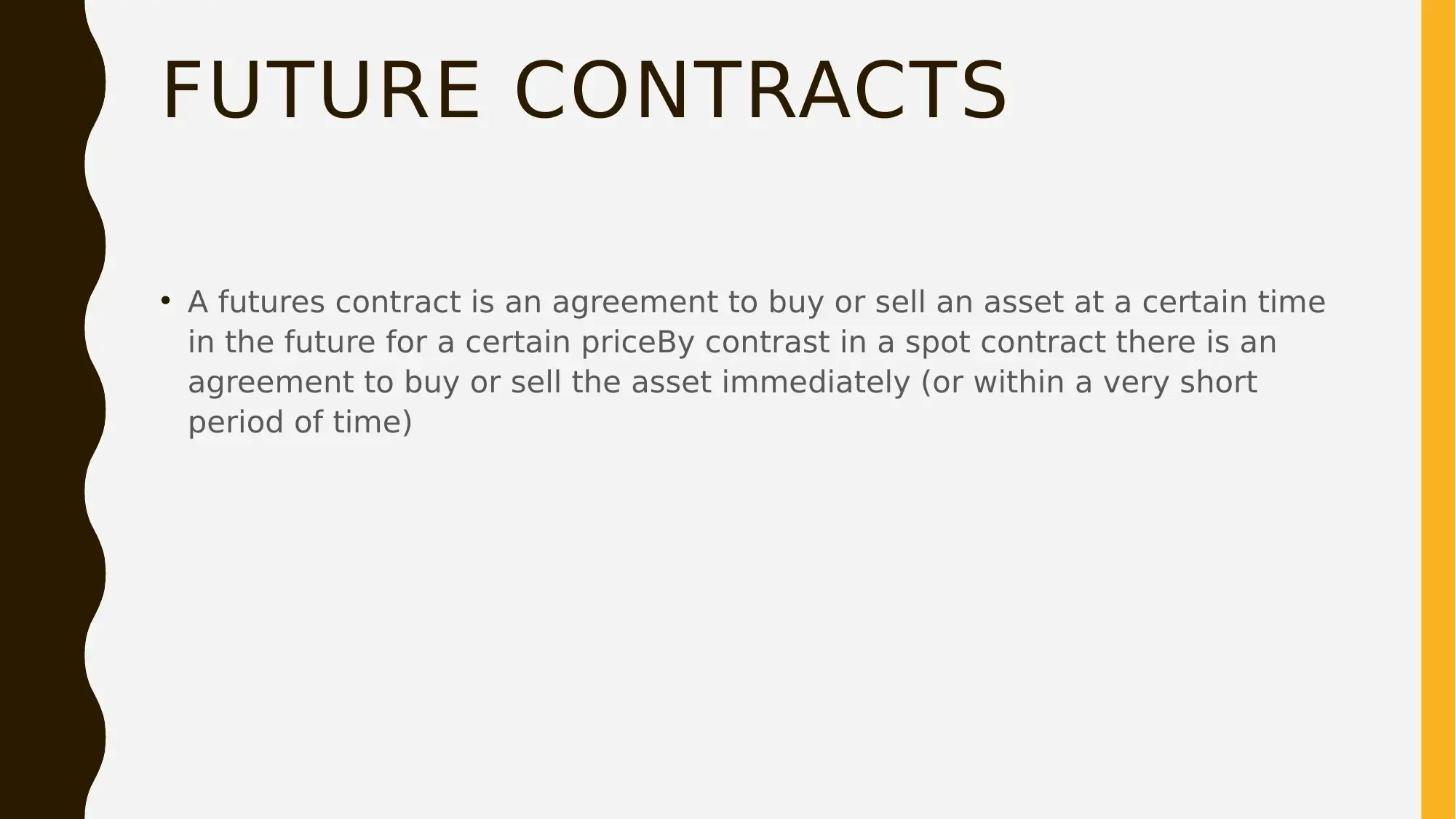
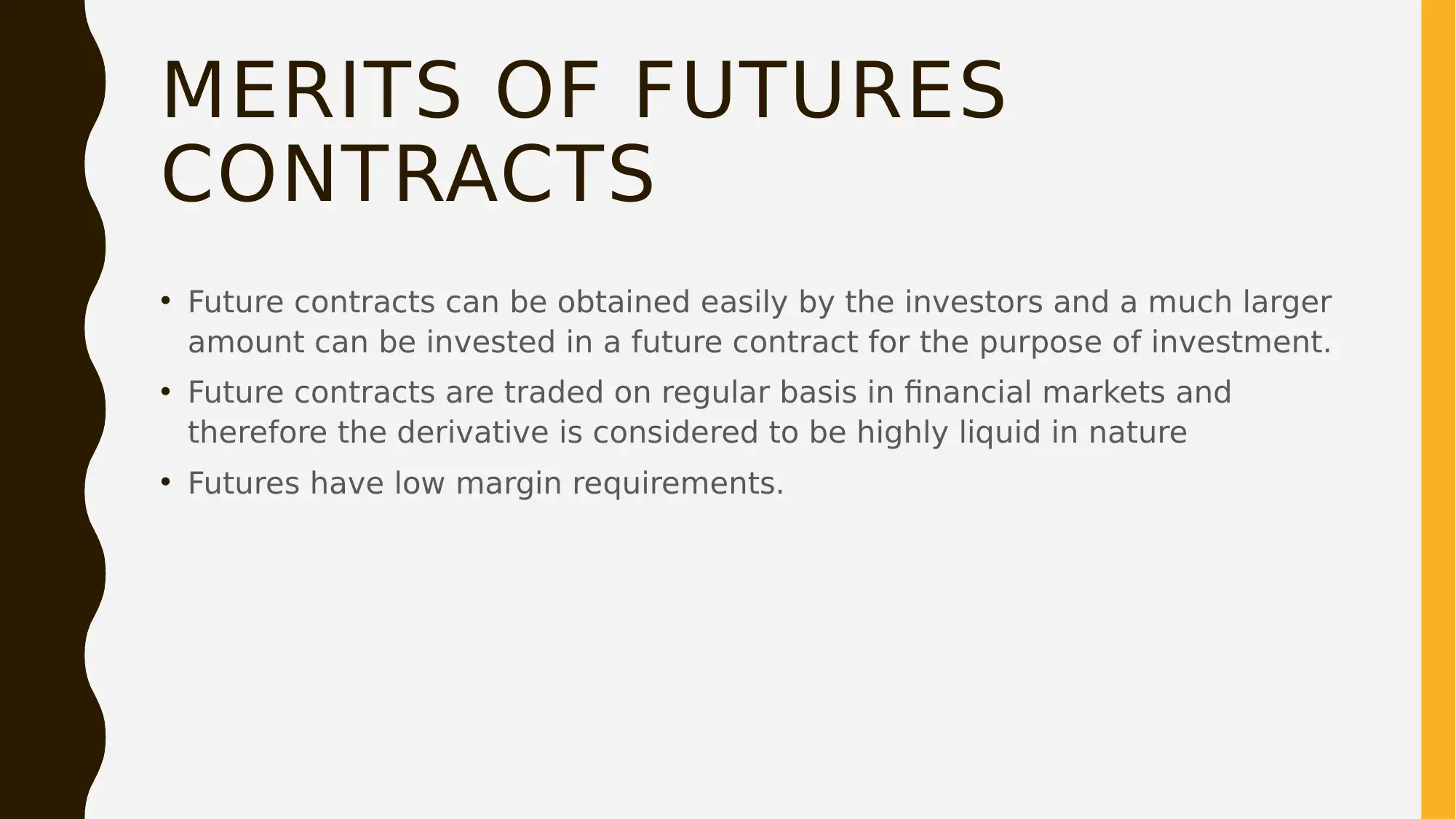
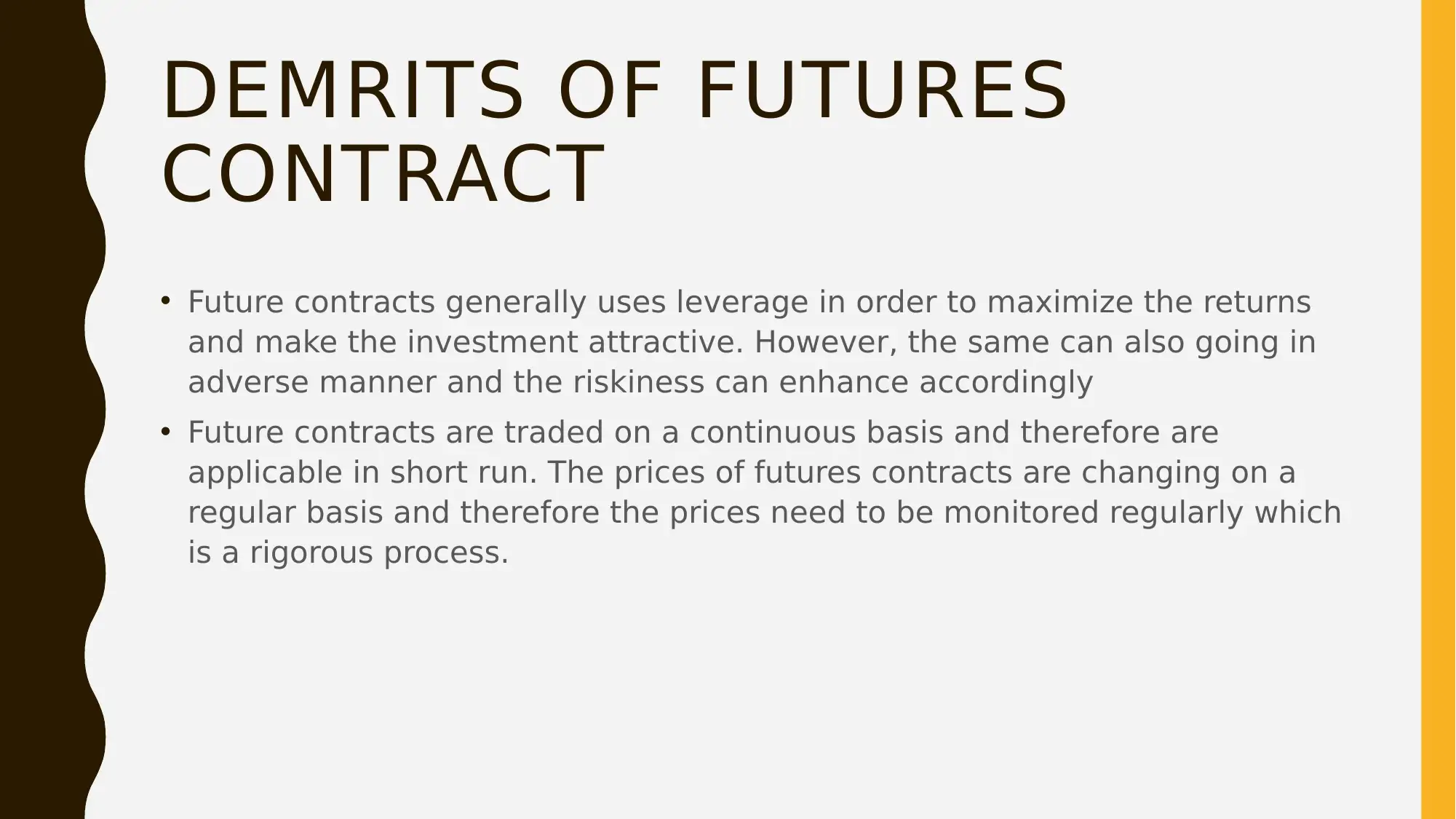
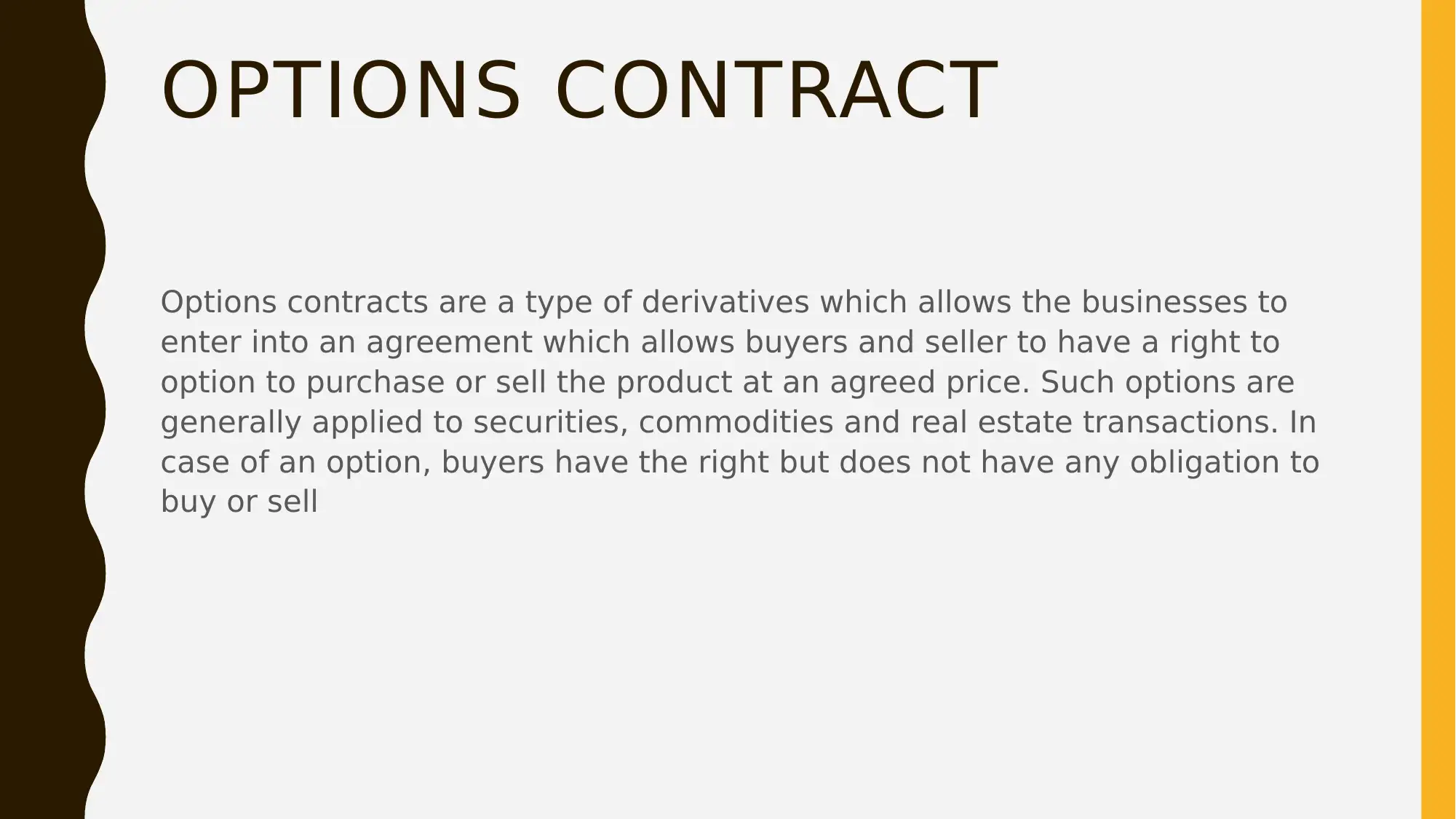
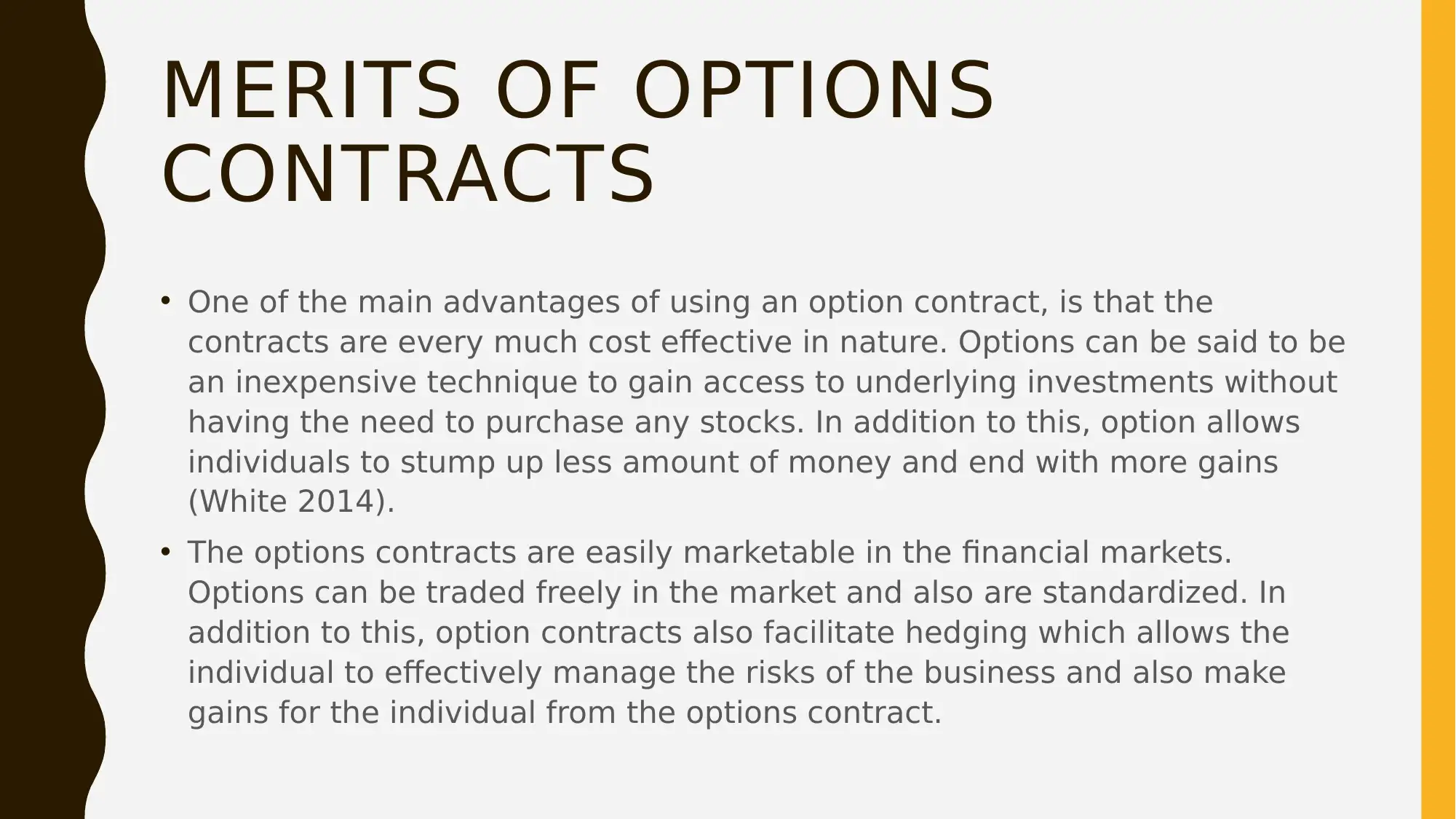






![[object Object]](/_next/static/media/star-bottom.7253800d.svg)